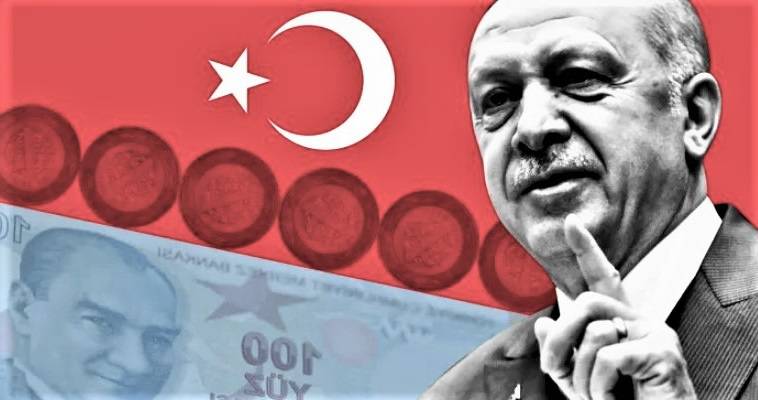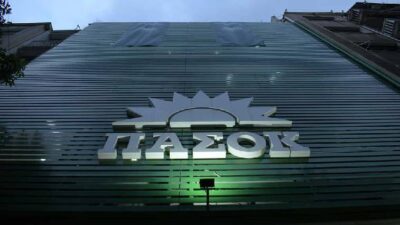Giorgos Adalis: Instead of collapsing, the Turkish economy is the first in growth globally!
16/12/2020
In Europe and Greece, pundits insist on analyzing the economic situation in Turkey as if it were a typical western country. However, in order to have reliable analyses of the Turkish economy, we must take into account the data that apply to the country. So let’s look at some facts, which became known in the markets a few days ago, but did not receive the attention they deserve in Greece.
It is an indication of the wrong way we often look at Erdogan’s policies in the G-20 (20 most powerful countries in the world), including Turkey, all of which showed negative growth rates in the third quarter of 2020 except for two: China and Turkey. As you can see in the chart below, Turkey emerged as the champion in growth during the 3rd quarter with a percentage of 6.7% compared to the corresponding quarter of 2019.
The percentage is high even if there was no pandemic. It is followed by China with a growth of 4.9%. The rest of the countries, like the Eurozone, showed a recession in the third quarter: Russia -3.6%, the Eurozone -4.4% and Mexico -8.6%.
In the second quarter of 2020, Turkey had experienced a recession (fall in its GDP) by -9.9%. And if one adjusts the two-quarter figures based on working days, then Turkey’s overall recovery from the 2nd to the 3rd quarter amounts to 15.6%, an unrealistic increase for pandemic data.
Turkish development and forced comparisons
Let us compare these performances with the performances of the Greek economy in the corresponding period. According to a recent announcement by Greece’s statistical agency ELSTAT in the 3rd quarter of 2020, the recession in Greece is -9.6% compared to the same corresponding quarter of 2019.
This comparison has not been analyzed in Greece, despite the fact that all these data have seen the light of day for at least ten days. The reasons I think are obvious! Comparing the Greek government’s performance in the economy with the performance of Erdogan is something that does not benefit anyone. Neither Greek politicians nor those who have built careers on the theory of the “collapse of the Turkish economy from hour to hour”!
It is a fact that Turkey has sacrificed its lira for the benefit of GDP growth. But what really happened in the country, so that it became a world champion in growth rates, at a time when its currency is collapsing and its private debt has soared? What did Erdogan do and why we do not want to even discuss it in Greece as obviously, the comparison hurts us? Where lies the Sultan’s well hidden “secret”?
It is a fact that Turkey with a GDP of 736 billion dollars (2019 prices) surpassed all G-20 countries in growth rate, even galloping China, while Greece reached the bottom. A deeper look at individual indicators of the Turkish economy shows that exports decreased on an annual basis by -22%. So how is it possible in such an economic environment, where the lira is falling, exports are falling, tourism has fallen, that Turkey is making such a big leap in GDP growth?
Erdogan cast a lifeline
First, the gross fixed capital formation of companies increased by 23% annually in Turkey. Something that kept them upright during the pandemic that followed. For a long time, imports to Turkey had been reduced by almost half.
So Erdogan saw that he had to avoid at any sacrifice, the contraction in his economy from any shrinking consumption index. Something he fears like the devil because what concerns him above all, is the availability of products produced by his economy. So he decided to support consumption at all costs. Despite the fact that he already had “red loans” from 2019, with the coronavirus crisis, he decided to support households and small businesses.
He therefore obliged the banks in the country to increase loans to households and businesses. Not with big loans spread among the economy’s “big sharks” but through small loans, which aimed to push the Turks towards consumption but also to give a “lifeline” to small businesses.
As you can see in the diagram below, it is clear that Erdogan pushed a lot of money into the domestic market!
While by the last quarter of 2019 the total of such loans was around 2.5 trillion Turkish lire, suddenly with the onset of the pandemic, banks began to increase lending, and by the third quarter of 2020, these loans exceeded 3.5 trillion pounds!
This resulted in the strengthening of domestic tourism since whoever wanted to, at the time, took out a small loan. At the same time, it sharply boosted demand on the whole, greatly increasing the consumption index. In fact, in the third quarter, the increase in demand for consumer products reached 9 points higher than the corresponding third quarter of 2019.
High-risk policy
Of course, with all these loans, he supported households and small businesses, to such an extent that he managed to boost consumption especially during the summer months of the year! It is certain in my opinion that in the fourth quarter consumer loans will be greatly reduced because he achieved what he wanted to. In the fourth quarter, Turkey will aim to increase its exports by making offers at more attractive prices for its products internationally. Obviously with some measure of tax reduction on the products it exports. While it will put a brake on small loans.
Certainly, in the fourth quarter, it will not achieve such high performance. So Erdogan is trying to close the year of the pandemic with a positive sign. Or in the worst case it should be close to zero, “occupying” if not the first place globally, the second in growth rates and to give the image of the economic superpower that even competes with China.
Erdogan’s policy is really a high-risk economic policy. Because at the center of the Sultan’s economic policy is the assumption that he will be able to sell all of his production, either inside Turkey or abroad. And when we talk about foreign countries, we mean the world’s largest consumers, the United States, and the European Union. After all, we all saw that at the recent EU summit.
Like Trump’s refusal to sign sanctions against Turkey by vetoing it. The Sultan, therefore, succeeded and gained valuable time in the battle with the coronavirus crisis. And not only did he save time, but he managed to present in the third quarter, all the necessary elements that rank Turkey, the first country in the world in terms of growth rates, while the rest are struggling with the negative numbers caused by the Pandemic!
The moment has come
In conclusion, the Turkish economy is clearly facing several serious problems, two of which are the most critical. One is the well-known monetary crisis and one less known is the huge private debt. However, it seems that Erdogan manages and leverages many things at the same time in his economy and in combination with the large production base in the primary and secondary sector, he is constantly escaping the economic gallows.
It is now understood that he does not perform his acrobatics on high-risk politics just because he just came up with it, but mainly because he has the assurances of the USA, Russia, and Germany, that the citizens of these countries will continue to consume Turkish products! Therefore, the time has come for the political elite in Greece to stop hiding behind its finger and to see the truth clearly. And most importantly, to inform the Greek citizens about the real purposes of our allies.







